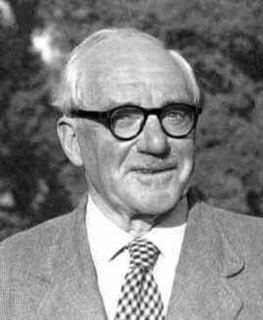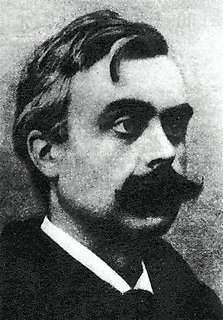A Quote by George MacDonald
The ideal is the only absolute real; and it must become the real in the individual life as well, however impossible they may count it who never tried it.
Related Quotes
One might suppose that reality must be held to at all costs. However, though that may be the moral thing to do, it is not necessarily the most useful thing to do. The Greeks themselves chose the ideal over the real in their geometry and demonstrated very well that far more could be achieved by consideration of abstract line and form than by a study of the real lines and forms of the world; the greater understanding achieved through abstraction could be applied most usefully to the very reality that was ignored in the process of gaining knowledge.
The people, the ultimate governors, must have absolute freedom of, and therefore privacy of, their individual opinions and beliefs regardless of how suspect or strange they may appear to others. Ancillary to that principle is the conclusion that an individual must also have absolute privacy over whatever information he may generate in the course of testing his opinions and beliefs.
"There is one basis of science," says Descartes, "one test and rule of truth, namely, that whatever is clearly and distinctly conceived is true." A profound psychological mistake. It is true only of formal logic, wherein the mind never quits the sphere of its first assumptions to pass out into the sphere of real existences; no sooner does the mind pass from the internal order to the external order, than the necessity of verifying the strict correspondence between the two becomes absolute. The Ideal Test must be supplemented by the Real Test, to suit the new conditions of the problem.
We come finally, however, to the relation of the ideal theory to real world, or "real" probability. If he is consistent a man of the mathematical school washes his hands of applications. To someone who wants them he would say that the ideal system runs parallel to the usual theory: "If this is what you want, try it: it is not my business to justify application of the system; that can only be done by philosophizing; I am a mathematician". In practice he is apt to say: "try this; if it works that will justify it".
All the controversialists who have become conscious of the real issue are already saying of our ideal exactly what used to be said of the Socialists' ideal. They are saying that private property is too ideal not to be impossible. They are saying that private enterprise is too good to be true. They are saying that the idea of ordinary men owning ordinary possessions is against the laws of political economy and requires an alteration in human nature.
The heaviest of burdens is simultaneously an image of life's most intense fullfillment. The heavier the burden, the closer our lives come to the earth, the more real and truthful they become. Conversely, the absolute absence of a burden causes man to be lighter than air, to soar into new heights, take leave of the earth and his earthly being, and become only half real, his movements as free as they are insignificant. What then shall we choose? Weight or lightness?
I had very good LSD, but the problem was - I tried making a film, or doing some filming, when I was on LSD, and it's impossible. I couldn't focus. I tried focusing, but when I looked through the lens, I'd see all different layers of focus, and I couldn't find which was the real one behind the camera. And I just thought, this does not work, and I never tried that again.





































